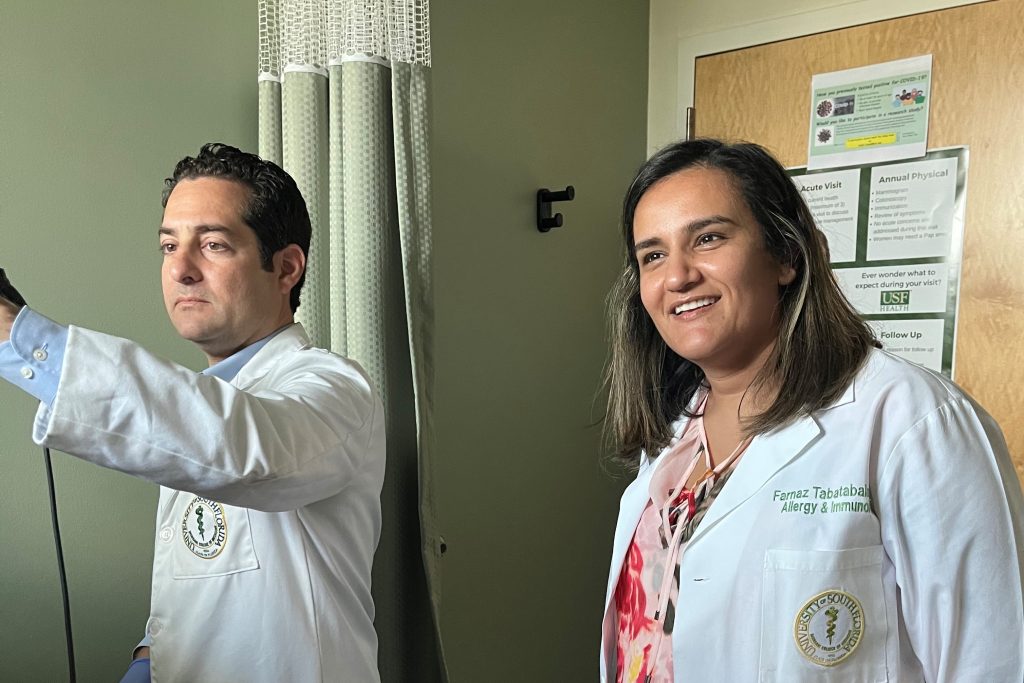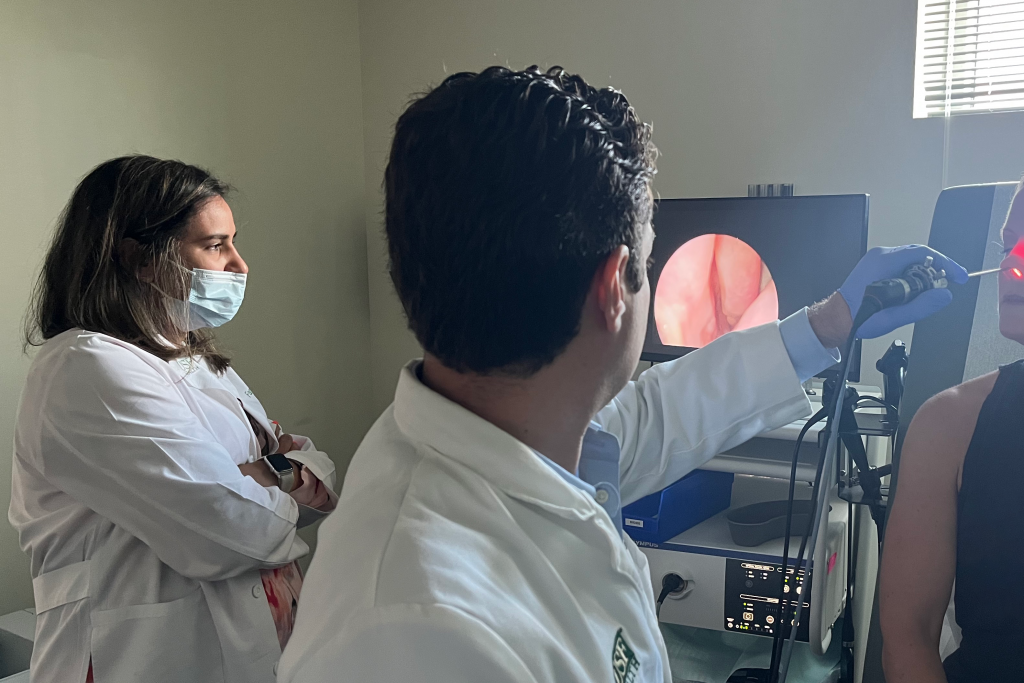The complexities and nuances for successfully treating chronic sinusitis usually involves two medical specialists, an otolaryngologist-head and neck surgeon (also called an ENT) and an allergist/immunologist.
Patients with this condition usually see these two specialists in separate appointments.
Now USF Health is offering a merged clinic for patients with chronic sinusitis and related conditions where they will have one appointment with both an ENT and an allergist at the same time.
Farnaz Tabatabaian, MD, associate professor in the Department of Allergy and Immunology in the USF Health Morsani College of Medicine, and Mark Tabor, MD, associate professor in the Department of Otolaryngology Head and Neck Surgery in the USF Health Morsani College of Medicine, have combined their expertise and their clinics to form this new merged clinic.

The aim is to more effectively treat patients by being more efficient with the treatment plan, Dr. Tabatabaian said.
“We’re an academic institution so we see more complex conditions,” Dr. Tabatabaian said. “Bringing these two specialties into one clinic, one visit for the patient, makes incredible sense, not just for convenience but also for continuity of care and better outcomes. An ENT and an immunologist both in the room will better help meet the needs of patients experiencing the most complex sinusitis cases.”
Those with chronic sinusitis need the expertise of both an ENT and an allergist because they may need surgery to address the physical and structural problems, which the ENT will provide, and then also need allergy shots, antibiotics and, perhaps, biologics from the allergist to address the underlying immune and inflammatory response. Most patients will need both approaches but, as typically happens, the time between appointments allows the condition to return, causing patients to need further care and starting the cycle of treatments and procedures over again.

“Done separately, the condition isn’t fully treated, meaning patients may go back and forth with ENT and allergist appointments,” Dr. Tabor said. “The structural fix only lasts until the immune system flares up again and sinusitis returns, or the immune system is calmed and the barriers in the structure continue to limit and sinusitis returns. By addressing both structural and immune response at once, treating the two root causes together, patients will fare better for beating the return of sinusitis.”
“The therapies are available, but the collaborative environment in one clinical setting means we are offering precision medicine at its core,” Dr. Tabatabaian said. “Combining our clinics into one collaborative setting means we are taking great care of patients and also learning from each other as colleagues.”
The USF Health combined clinic is also a great educational opportunity for medical students, resident physicians and fellows. And for patients, the merged clinic also means greater access to clinical trials for new therapies.
Chronic rhinosinusitis is inflammation of the nasal and sinus linings, nasal blockage, rhinorrhea, facial pressure/pain and loss of sense of smell, and may include nasal polyps.
Patients seeking appointments at this new USF Health combined clinic will need to have a diagnosis of chronic sinusitis and have tried but not benefited from traditional therapies. Ask your physician about a referral to the clinic to see if your condition qualifies.
